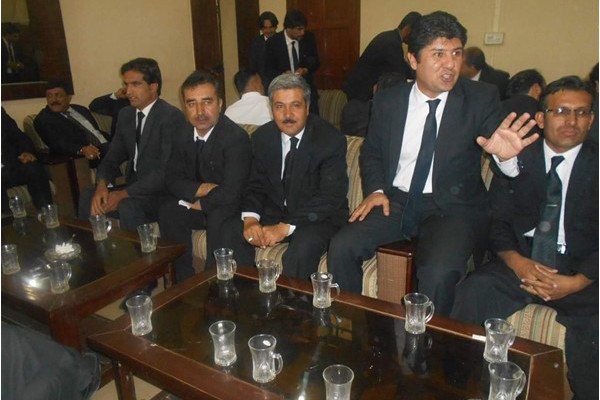
Dawood died, not because he was a lawyer or because he was a Baloch or because he spoke Persian, he died because he was one of us

My younger brother has forgiven me now for having abandoned him when I went to college across the seas. There, many moons ago, I met class fellows of every colour, race and persuasion known to man. In college, if you are lucky, your freshman roommate is almost like a brother.
Last week, two decades after I first began college, I met my college roommate; our children got to know each other and we quietly told one another how surprised we were that either of us had made it this far.
I am forced to reminisce about my roommate because my brother cannot. Soon after I left for college he also went to college in the heart of Lahore. A Ravian, he too met Pakistanis of all colours, hues and persuasions. He also had a roommate who was like a brother to him. And just as he knows my roommate through my stories, I know his roommate through his stories.
His roommate was Baloch; a handsome, Persian speaking, straight-backed son of a paediatrician. His mother, on the phone, did not speak Urdu, in fact she spoke English with a Convent accent. He was known to our family through the escapades that my brother told us, and my brother was known to Dawood’s family in Quetta through the escapades Dawood related in his home.
Dawood became a Barrister and my brother joined the army. My brother was reprimanded for keeping the wrong sort of company and Dawood helped my brother fight legal cases against smugglers. The wheel of life grated on.
But there was one problem. While my roommate was a lawyer in the UK, Dawood was a lawyer in Quetta. He was a leader of his people; the future of our country. And he died, together with his uncle, when a bomber from our midst exploded himself in a hospital filled with lawyers in Quetta on August 8th.
Read also: The sources of terror
He died, not because he was a lawyer or because he was a Baloch or because he spoke Persian, he died because he was a Pakistani. He would have been alive if he had been a Persian-speaking Baloch lawyer in the UK. He died because he was Pakistani; because he was one of us.
And, we know well, when the dust settles and the anti-West and the anti-India anger subsides we will find out that the killer was one of us. This is a war between friends. This fight is with ourselves. The enemy is not just within us; the enemy is actually us, me, I. I am the enemy.
When I first heard of a place called East Pakistan and did not ask how it became Bangladesh; When I first saw a child working in someone’s house and stayed quiet; when I first saw a man ask for a ‘katchi receipt’ and did not object; when I first saw a school with no walls next to a mosque with no children; when I first prayed in a mosque built on encroached land; when I first entered a government residence guarded with armed policemen and did not object; when I was too scared to tell a general that he was wrong, I became the enemy.
Read also: Quetta bleeds again
The only thing that is good about being your own enemy is that the solution is only a realisation away.
When I quietly accepted that my passport stated not only that I am Pakistani but also that I am a certain type of Pakistani; when I walked into my first Bara Bazaar; when I ate my first roti cooked on subsidised Sui gas; when I first accepted Zia’s Islam and Musharraf’s moderation; when I first celebrated a bomb blast in Bombay; when I first dreamt of conquering Afghanistan; when I first hated my enemy, I became the enemy.